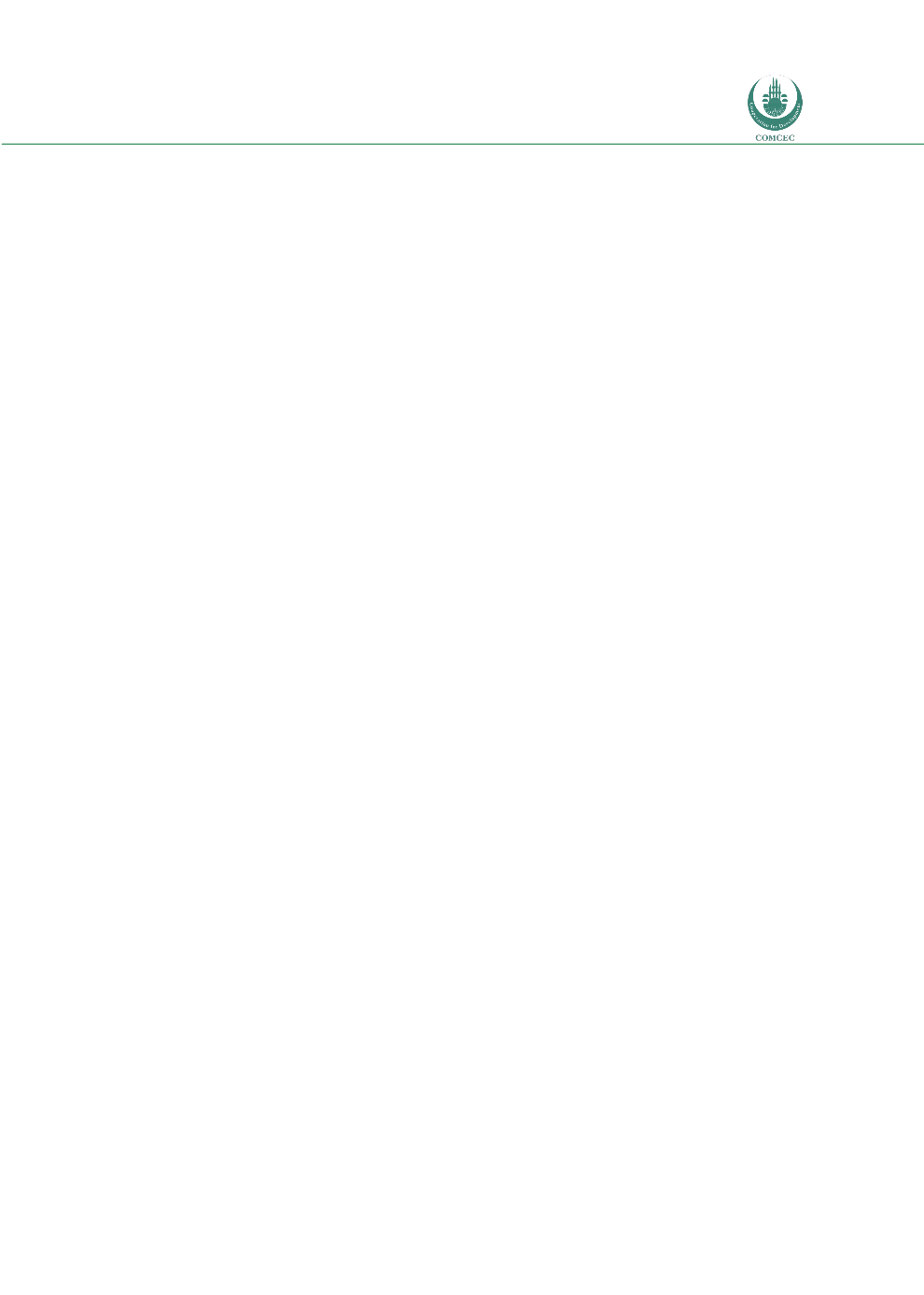

Risk Management in
Islamic Financial Instruments
127
increase advocacy and awareness of accounting and auditing standards. They may provide
technical assistance to supervisors as well (
A Mid-Term Review
117).
6.3.3 Rating Agencies
IFRS reporting standards do not fully reflect the performance of the IIFS. IFRS standards do
not take into account attributes of IIFS such as “the nature of IIFS products, their practice to set
up reserve funds to smooth profit distribution and protect risk sharing depositors’ principal,
the commitment to distribute
Zakat
(Grais 9)
.”
In 2008, conventional banks experienced more
downgrades in ratings, compared to Islamic banks (IFSB 44). The International Islamic Rating
Agency was created in 2005 with the goal of improving the local and international recognition
of the Islamic finance industry. It also intends to help improve transparency in the industry
(GIFF 2012 12).
6.3.4 Talent Development
According to the fifth recommendation, actors in the Islamic finance industry will need to
develop and utilize its human capital and technology to be more competitive with traditional
financial institutions. The progress of organizations in this area can be identified by the
percentage of countries that have access to Islamic finance education and the level of access to
web-based specialized Islamic finance training. Another indicator is the number of
professionals with certifications and industry-specific qualifications (
A Mid-Term Review
106).
Improving human capital and technology will expand the reach of Islamic finance. To attain
better human capital and technology, there needs to exist an enabling regulatory environment.
For example, access to finance can be increased if regulations allow different methods of
banking, such as mobile banking, to exist and function (
A Mid-Term Review
127-128).
6.4 INTERNATIONALIZATION OF ISLAMIC FINANCE
There has been a great deal of effort to standardize Islamic finance practices across countries
and promote greater cooperation. This has been achieved through the creation of the Ten-Year
Framework and the work of organizations such as the IDB Group, IFSB, AAOIFI, and the IIFM.
Through internationalization, countries and institutions intend to share best practices to
further the growth of the IFSI. There is ample room for formal collaboration (
A Mid-Term
Review
44).
Opportunities for cross-border investments are limited, due to a lack of generally accepted
standards for Islamic finance, thus putting the IIFS at a competitive disadvantage to
conventional counterparts. Principles-based rules are needed, rather than ad hoc rules (Grais
6-7). According to the Islamic Research and Training Institute (IRTI), there has been good
progress made on the Ten Year Framework’s recommendations on improving the legal and
regulatory frameworks in various countries (
A Mid-Term Review
7). This judgment was based
on the number of collaborative projects between countries that offer Islamic financial services
(
A Mid-Term Review
107). A recommended initiative from the
Mid-Term Review
is to link

















